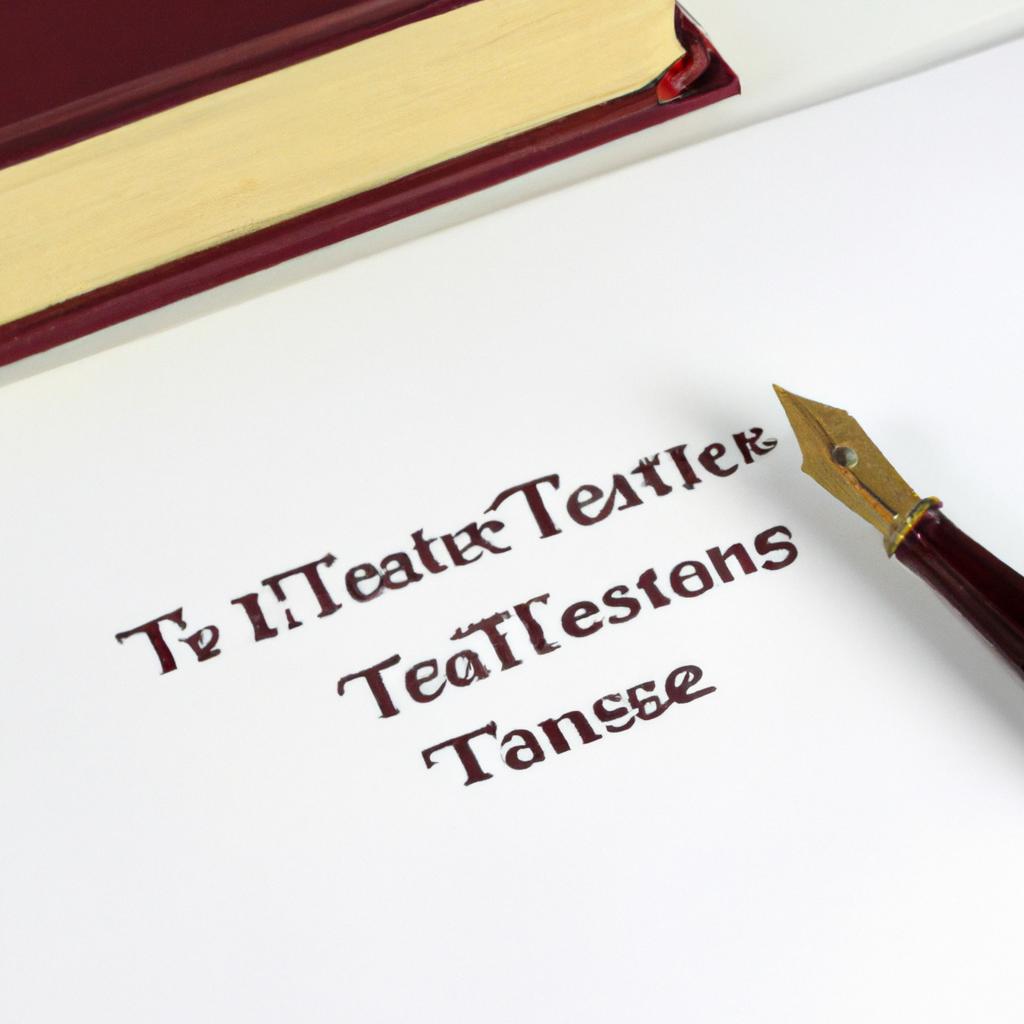In the intricate web of estate planning and asset transfer, one often overlooked yet critical area is the title transfer upon death. As experienced attorneys at Morgan Legal Group in New York City, we understand the complexities and implications of navigating this legal terrain. In this article, we will explore the nuances of title transfer upon death, shedding light on the rules and regulations that govern this process. Join us as we delve into this essential aspect of estate planning and gain valuable insights into ensuring a smooth and efficient transfer of assets.
Understanding the Legal Process for Title Transfer Upon Death
Probate Process:
When a person passes away, their estate must go through the probate process in order for the title to be transferred legally. During probate, the court will determine the validity of the deceased person’s will, if there is one, and appoint an executor to handle the distribution of assets. The executor will be responsible for transferring the title of the deceased person’s property to the rightful beneficiaries as outlined in the will.
Transfer on Death Deed:
In some cases, the deceased person may have set up a Transfer on Death Deed (TOD) for their property. A TOD deed allows the property to be transferred to a named beneficiary upon the death of the owner without having to go through probate. However, it is important to note that TOD deeds are not recognized in all states, so it is crucial to consult with an experienced estate planning attorney to ensure that your property will be transferred according to your wishes upon your death.

Key Factors to Consider in Estate Planning for Title Transfer
When it comes to title transfer upon death, there are several key factors to consider in estate planning to ensure a smooth and efficient process. One important factor to consider is the type of ownership of the property. Whether the property is held as joint tenancy with rights of survivorship or as tenants in common can have a significant impact on how the property is transferred upon death.
Another important factor to consider is the use of a revocable living trust. By placing your assets, including real property, into a trust, you can avoid the probate process and ensure that your wishes for the distribution of your estate are carried out as intended. Additionally, having a comprehensive and up-to-date Will is essential in determining how your property will be transferred upon your passing.

Common Issues and Pitfalls to Avoid in the Title Transfer Process
When navigating the title transfer process upon the death of a loved one, it is crucial to be aware of common issues and pitfalls that may arise. By avoiding these challenges, you can ensure a smooth and efficient transfer of property. One common issue to watch out for is improper documentation. Failing to provide the necessary paperwork or not having it in order can lead to delays and complications in the transfer process. Make sure to gather all relevant documents, such as the death certificate, will, and any trust agreements, to facilitate a seamless transfer of title.
Another pitfall to be mindful of is overlooking outstanding debts or taxes associated with the property. Before transferring title, it is essential to address any liabilities that may affect the property. This could include outstanding mortgage payments, property taxes, or liens. By resolving these issues promptly, you can prevent delays and potential legal challenges down the line. Take the time to conduct a thorough review of the property’s financial obligations to ensure a smooth transfer process.

Recommendations for Ensuring Smooth Title Transfer Upon Death
Plan ahead: One of the most important steps to ensure a smooth title transfer upon death is to plan ahead. Make sure you have a comprehensive estate plan in place that clearly outlines your wishes for transferring titles to your assets. This can help avoid any confusion or disputes among heirs or beneficiaries.
Keep documents organized: It is crucial to keep all relevant documents, such as property deeds, vehicle titles, and investment account statements, organized and easily accessible. This will make it easier for your loved ones to locate important paperwork and facilitate the transfer process smoothly. Consider creating a detailed inventory of your assets and their corresponding titles to make the process even more streamlined.
Table: Asset Inventory
| Asset Type | Title Holder | Location of Title |
|---|---|---|
| Real Estate | John Smith | Safe Deposit Box |
| Vehicle | Mary Johnson | Home Filing Cabinet |
| Investment Account | Emily Brown | Attorney’s Office |
Q&A
Q: What is title transfer upon death?
A: Title transfer upon death is the legal process by which ownership of property is automatically transferred to a designated beneficiary upon the death of the original owner.
Q: How does title transfer upon death work?
A: When a person dies, their property is transferred to the beneficiary named in their will or estate plan. This transfer occurs without the need for probate, which can save time and money for the beneficiary.
Q: What types of property can be transferred through title transfer upon death?
A: Real estate, bank accounts, vehicles, and other assets can be transferred through title transfer upon death. It is important to properly document and designate beneficiaries for each type of property.
Q: What are the benefits of title transfer upon death?
A: Title transfer upon death can help avoid probate, which can be a lengthy and costly process. It also allows for a smoother transition of assets to beneficiaries and can help ensure that the deceased’s wishes are carried out.
Q: How can someone ensure that title transfer upon death is carried out correctly?
A: It is important to create a comprehensive estate plan that clearly outlines how each asset should be transferred upon death. Working with an experienced estate planning attorney can help ensure that the process is carried out correctly.
Closing Remarks
In conclusion, understanding title transfer upon death is crucial for ensuring a smooth transition of assets to heirs. By familiarizing yourself with the various methods of transferring titles, you can protect your loved ones and avoid potential legal challenges in the future. Whether it be through a will, joint ownership, or a trust, having a clear plan in place can help alleviate stress during a difficult time. Remember, it’s never too early to start planning for the future. Thank you for reading.

